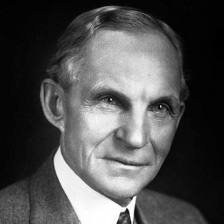Whether you realise it or not, you are constantly in the process of creating and changing your reality.
You are not truly aware of what someone else’s reality really looks like, and they are not truly aware of what your reality looks like. You are only aware of your own reality and how it looks to you.
Don’t believe me? Take a simple scenario. A road traffic accident, where nobody is hurt, fortunately, when one car hits another car. There are three witnesses. A policeman will ask each witness what he or she saw. There will be three completely different perceptions of the same incident.
For instance, one person might state that they saw the first car brake suddenly, so the driver of the car behind (being far too close in their perception) braked really hard but the car was going too fast and ran into the car in front with a loud bang.
The second person saw the second car approaching the car in front too fast and the driver didn’t appear to even see the car in front and ran straight into it without braking.
The third person witnessed the first car slow down too much so the driver of the car behind (which wasn’t going too fast) couldn’t quite stop in time (though they tried) and hit the car in front really hard.
Three different perceptions of the same accident – each quite ‘real’ to those witnesses – but significantly dissimilar.
How you perceive your life and everything around you will differ dramatically from other people’s perceptions. Your reality is totally unique to you.
How you think about your life, how you see yourself in the mirror, and what you believe is happening to you at any given moment, will be the reality that exists for you.
You’d better believe it!
So what are your beliefs? They are your views, judgments, guiding principles and decisions about yourself, family and friends, communities, organisations, employers and everything else you come into contact with.
Your beliefs filter everything you see, hear and feel around you and, as a result, determine the meaning you attach to any event. Your beliefs act as self-fulfilling prophecies. If you think that you can’t do something and then find it extremely difficult to do and give up trying, you have successfully fulfilled your belief that you can’t do it. What would have happened if you had believed that you could do it? Would your reality have been different?
Your beliefs, whether they be limiting or empowering, determine your actions, and your actions in turn verify your beliefs. Over time, as you collect more evidence to prove your beliefs, your beliefs become your reality.
Your beliefs operate in your subconscious mind and influence your conscious mind, as I mentioned in the previous chapter; they affect your thoughts and behaviour. Whilst you are aware of many of your beliefs, in general, your most influential beliefs are stored away in your subconscious mind.
There are some beliefs you view as absolute truths and never question – that is just the way the world is! A change in your beliefs can have a major impact on how you live your life and the behaviours you manifest.
Once you believe in something, you tend to ignore opposite examples and accept only those events that reinforce that belief.
As Henry Ford, industrialist, said:‘Whether you believe you can or believe you can’t, you are probably right.’
How right he was.
Henry Ford
Do you currently have beliefs that keep your reality comfortable and safe and that prevent you from exploring your true potential? Do you choose to acknowledge only the reality that is predicted by your limiting beliefs and then use these observations as proof that your current reality is indeed true?
Is it time to step out of your comfort zone and set sail into the unknown? To push the boundaries of what you think you know and discover new lands and opportunities – to challenge yourself to create your new reality?
This is an excerpt from my book ‘What you believe creates your reality‘. If anything resonates with you, please buy it, read it, take action………………….change your life.
Maggie Currie
Email: hello@maggiecurrie.co.uk
Follow me on:







